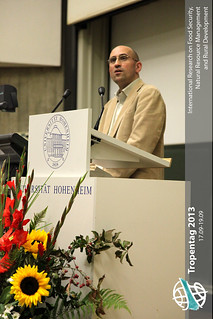Do you eat less meat to prevent climate change?
So far, energy and climate policies have been rather unsuccessful in reversing climate change. In order to avoid negative effects, like danger of food security or water supply, it is essential to drastically cut down on global GHG emissions.







Comments
Post new comment